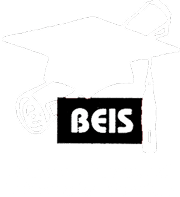Imagine showing up for a job interview with a résumé no one can read. That’s what it’s like when a student submits untranslated transcripts to a U.S. university. No matter how brilliant the academic record is, it literally gets lost in translation.
That’s why American colleges and universities request both translated and evaluated transcripts. They’re not doing it to make things harder. They’re doing it to understand you and help you succeed.
It’s Not Just a Translation, It’s a Conversation
Translating a transcript isn’t about swapping words from one language to another. It’s about context. It’s about accuracy. And most importantly, it’s about fairness.
Admissions teams want to give every student a level playing field. But how can they compare a GPA from São Paulo with one from Seoul if they don’t speak the same academic language?
That’s where translation and evaluation come in. Together, they act as a bridge, turning apples and oranges into something admissions officers can actually compare.
Evaluation Turns the Light On
Once your transcript is translated into English, it still needs to be evaluated. Why? Because grading systems vary wildly across countries. A 17 out of 20 in France may be excellent, while a 70 in another country might be below average.
Evaluation experts take your transcript and shed light on what your grades actually mean. They convert your academic history into a format that makes sense to U.S. institutions. Without it, admissions teams are guessing. And your hard work deserves better than that.
Why Can’t I Just Translate It Myself?
You could try. But even if your English is perfect, there’s a catch. U.S. universities require official certified translations. That means someone with credentials (i.e. someone trained to avoid mistakes) has to do the work. A missed accent mark or a misused term can throw off the entire evaluation.
We’ve seen cases where a student did not get proper academic credits for course completed simply because their self-made translation listed the wrong course title. One typo turned “Calculus II” into “Calculation.” It might sound small, but that slip cost them a scholarship.
The Stakes Are Too High for Guesswork
Admissions decisions often come down to fine details. If a university can’t confirm that you meet their academic standards, they won’t take the risk. It’s not personal, it’s policy.
That’s why professional services like ours exist. Our team has helped thousands of students submit translated and evaluated transcripts that speak clearly on their behalf. We’ve worked with international students from every continent, each one bringing a different story, a different education system, and a different dream.
We take that seriously.
The Process: Simple, But Vital
First, your transcript is translated. Word for word, line by line. This step must preserve the original layout, grading scale, and course names. Think of it like replacing the text on a page without changing the page itself.
Then comes evaluation. This is where we look at what those grades mean in your country and what they translate to in the U.S. system. It’s not just about the numbers. We consider your school’s rigor, your country’s grading norms, and the broader academic picture.
The end result? A document that accurately and clearly tells your full academic story.
More Than a Requirement. It’s Your Academic Voice.
At Bruscan, we believe transcript translation and evaluation aren’t just paperwork. They’re your introduction. They tell U.S. universities who you are, what you’ve achieved, and what you’re ready to take on next.
We’ve met students who cried tears of relief when they saw their evaluated transcript. Not because it was perfect, but because it was finally understood.
Bruscan Helps Your Achievements Be Understood
We know the pressure. Deadlines loom. Expectations weigh heavy. You’ve spent years building your academic foundation. Don’t let it crumble in translation.
Our team is here to help make your documents speak the right academic language and speak it fluently. Whether you’re applying for undergrad, graduate school, or a professional license, your transcript deserves to be seen for what it truly is.
And so do you.
FAQ
- Why can’t universities just accept my transcript as-is?
Because they can’t interpret what they don’t understand. Without translation and evaluation, your academic records are unreadable or incomparable. This helps them understand what your education really means.
- Who does the translation and evaluation?
Certified professionals trained in academic standards and education systems. At Bruscan, we bring decades of experience and a global understanding of education systems.
- Do I need both translation and evaluation?
Yes. Translation makes your document readable in English. Evaluation makes it meaningful. One without the other leaves room for confusion.
- Can I submit a translation from a friend or relative?
No. Most schools require certified translations. Informal or self-translated documents are often rejected outright.
- How long does the process take?
It depends on your transcript’s length and the country of origin. But we know time matters—so we prioritize quick turnaround without sacrificing quality.
Getting Academic Translations Starts with Bruscan Educational Information Services
You’ve already done the hard part; earning the grades. Now let us help you present them the right way.
Don’t let language barriers block your success. Reach out to Bruscan Educational Information Services and take the next step toward your future with confidence.
Contact us today to meet university translation requirements.

